Leider ist der Eintrag nur auf English und Français verfügbar.
Two Good Days When Crimes Against Nature Were Exposed
For two days in the Maison des Metallos, Paris, experts, victims, prosecutors and judges presented or listened to cases of crimes against Mother Earth and at the end judgements were passed. There were solemn spiritual moments, moments of awe at the rapacious destructive capacities of humanity and many moments of tears as these destructions, including murders, were painted in words and pictures.
The International Rights of Nature Tribunal held parallel to the UNFCCC’s Conference of Parties where historical and current climate atrocities or real solutions are loath to be mentioned, not even in square brackets.
The Tribunal derives its authority from the peoples of the world as the children of the Earth. The basic framework comes from the Universal Declaration of Rights of Mother Earth (UDRME) that was adopted at the Peoples’ Summit on Climate Change and the Rights of Mother Earth held in Cochabamba, Bolivia, in April 2010 after the spectacular failure of COP15 in Copenhagen. At the commencement of the sitting of the Tribunal on 4 December 2015, the presiding judge, Cormac Cullinan, led other judges to vote and formally adopt the Convention and Statutes of the tribunal. These guide the running of the Tribunal and underscore the solemn duty of sitting as judges on the cases of infringements against Mothrer Earth.
This was the third session of the Tribunal, having sat first in Quito, Ecuador in January 2014 and then in Lima, Peru in December of the same year. The Tribunal was hosted by the Global Alliance for the Rights of Nature in conjunction with NatureRights, End Ecocide on Earth and Attac France with Natalia Greene heading the secretariat.
As I sat on the panel of judges along with Tom Goldtooth (USA), Alberto Acosta (Ecuador), Osprey Orielle (USA), Terisa Turna (Canada), Felicio Pontes (Brazil), Damien Short (UK), Attosa Soltani (USA), Ruth Nyambura (Kenya), Christophe Bonneuil (France), Philippe Desbrosses (France) and Dominique Bourg (Switzerland) we were repeatedly reminded that all beings on Earth are our relatives and that what we do to anyone of the children of the Earth we do to ourselves. The preamble of the UDRME states that “We are all part of Mother Earth, an indivisible, living community of interrelated and interdependent beings with a common destiny.”
It also came through that the crimes against Mother Earth are often wilfully committed because some people and the transnational corporations see nature as capital and Mother Earth as a dead organism. In a proposed case against cruel treatment of animals we saw shocking video of a wounded bull being butchered alive with hundreds of people gleefully watching.
The prosecutors, Ramiro Avila and Linda Sheehan led the witnesses in bringing out deep systemic alternatives to environmental protection and seeking to show that it must be acknowledged that ecosystems have the right to exist, persist, maintain and regenerate their vital cycles and that these ought to have legal standing in a court of law. The line-up of witnesses helped to ensure that Indigenous Peoples and oppressed communities had the space to share their unique concerns, knowledge and solutions about land, water, air and culture with the global community.
The presentations by experts and victims showed that climate change violates Articles 2 Sub sections a-j of the Universal Declaration of Rights of Mother Earth, especially the right to life and to exist; the right to be respected and “the right to regenerate its bio-capacity and to continue its vital cycles and processes free from human disruptions.”
Witnesses underscored the fact that although climate change is caused mostly by human activities, it is inaccurate to place that blame and the burden for action on all humans. In his presentation, Pablo Solon stressed that 10% of the richest individuals in the world contribute 49 per cent of the greenhouse gas (GHG) emissions and 90 companies contribute over 60 per cent of all GHG emissions. The top corporate polluters include Chevron, ExxonMobil (USA), Saudi Aramco (Saudi), BP (UK), Gazprom (Russia) and Royal Dutch Shell (Netherlands).
Evidence were adduced to show that the trio of governments/politicians, transnational corporations and the UNFCCC are complicit in the climate crimes as they work together to ensure that real solutions are avoided, binding commitments to cut emission are set aside in preference for voluntary or intended actions. In addition, the tribunal rejected the claims that destructive actions were taken on the basis of the necessity of development or that when emissions began to happen, and grew, the polluters did not know or anticipate the outcomes, are unacceptable.
The case was established that at play is the logic of capital and power and that the major corporations who have caused the problems are the sponsors of the COPs and have hijacked the system.
The fact that the extreme forms of extraction promoted by humans are crimes against Mother Earth came through very forcefully when the case of hydraulic fracturing or fracking was taken. Fracking was presented as a RAPE of the Earth and is one of the worst threats against the planet. Facts adduced in this case include that it sets stage for disaster each frack uses up to 2-8 million gallons of fresh water and that one well may be fracked up to 18 times. The process involves the use of up to 750 chemicals many of which, including benzene and formaldehyde are toxic. Billions of gallons of “frack fluid” and 60 per cent of chemicals used remain or are stored underground while the remainder are stored in open air pits. The Tribunal received evidence of radioactive wastes, toxic waters being left everywhere fracking takes place: in farms, schools, neighbourhoods as well as offshore. Witnesses and experts also insisted that fracking is guaranteed to pollute ground water. Testimonies of health impacts, deaths, rapes and other social disruptions dropped a pall of grieve over the venue of the meeting.
In the case against the Belo Monte and Tapajas mega dams in Brazil, the Tribunal was informed that 60-70 dams were being planned to be built over the next 20 years. Belo Monte alone will destroy 5000km2 of the forest and related biodiversity. The social impacts were described as ecological and cultural genocide against the indigenous communities.
Speaking forcefully about his lifelong work defending the Amazon forest, Cacique Raoni Kayapo told the Tribunal, “We all need nature to survive and it is fundamental that we protect her. Governments should hear the indigenous people who are in the frontlines of defending nature.” Looking piercingly at the panel of judges and then at the audience he intoned, “My struggle is for you, for all of us and for the future of humanity and for the future of our children.”
Other highlights of the sessions include the presentations that demanded that fossil fuels should be left under the ground in line with the findings of science requiring that this be done if we are to avoid catastrophic temperature rise. Oilwatch International presented the case for the creation of Annex Zero (0) nations, sub-nations and territories that have already taken steps or are in the process of doing so, of keeping fossil fuels under the ground. This was presented as real climate action and points at the pathway to a safe world. Examples were given of sites of such initiatives in all the continents of the world. Another highlight was the case for the recognition of ecocide in international criminal law.
The Tribunal accepted new cases including those that will try crimes against animals, the depletion of marine life, the Rosia Montana Mines in Romania, the extreme damage of the environment of the Niger Delta by the polluting acts of Shell and the crimes tied to the extraction of tar sands in Canada.
These were two days of plain talks and truth. They were days in which the raw injuries inflicted on Mother Earth and her children were laid bare. They were days of pain as well as of joy. Tears flowed freely from all sections of the hall. Indignation did not give birth to paralysis but to a resolve to stand up for Mother Earth.
In spite of the pains, the aches and the cries of Mother Earth that her children displayed, the words of Cases Camp Horinek kept echoing that the days of the Tribunal were indeed good days.
Nnimmo Bassey
Nnimmo Bassey is director of an ecological think-tank, Health of Mother Earth Foundation (HOMEF) and Coordinator of Oilwatch International. Bassey has authored books on the environment, architecture and poetry. He was chair of Friends of the Earth International (2008-2012) and Executive Director of Nigeria’s Environmental Rights Action (1993-2013). He was a co-recipient of the 2010 Right Livelihood Award also known as the “Alternative Noble Prize.” In 2012 he received the Rafto Human Rights Award. In 2014 he received Nigeria’s national honour as Member of the Federal Republic (MFR) in recognition of his environmental activism. His book, To Cook a Continent – Destructive Extraction and the Climate Crisis in Africa (Pambazuka Press, 2012) has been translated in Portuguese and Finnish (2014).
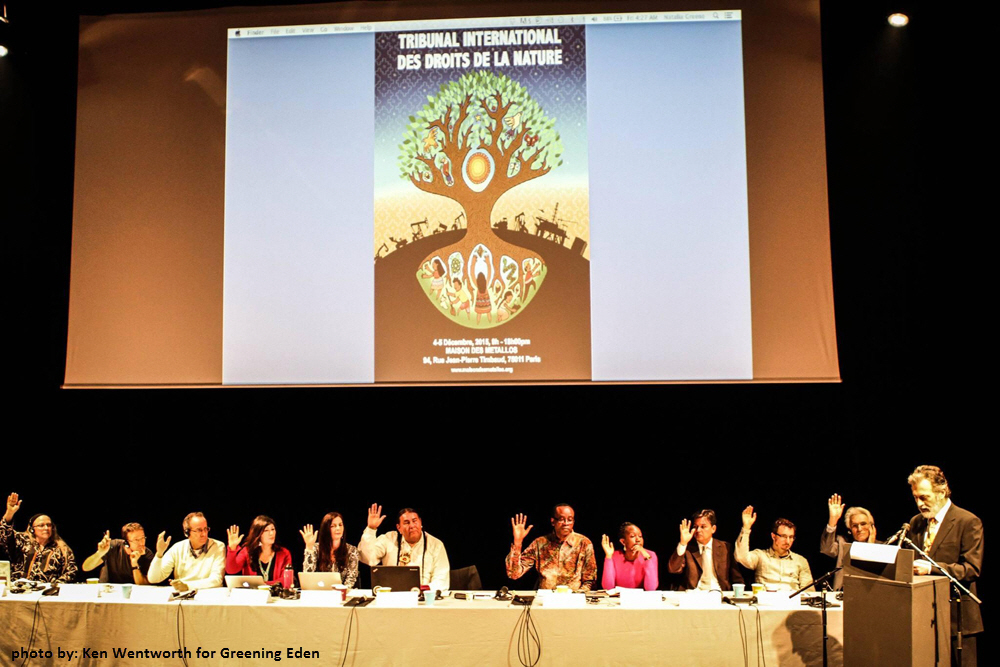
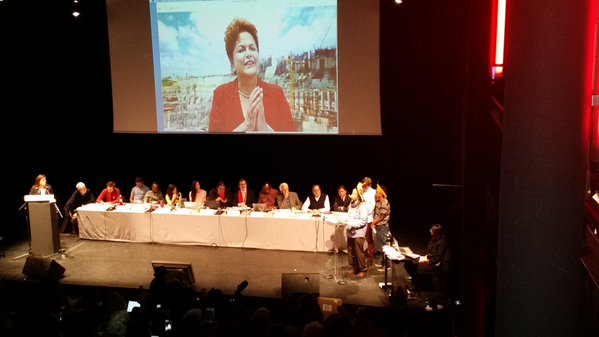
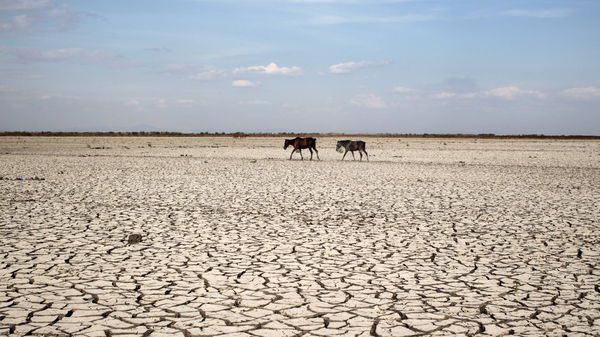
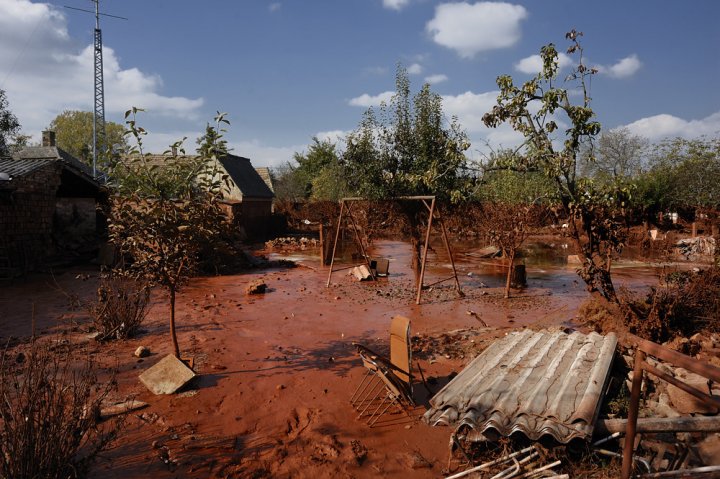
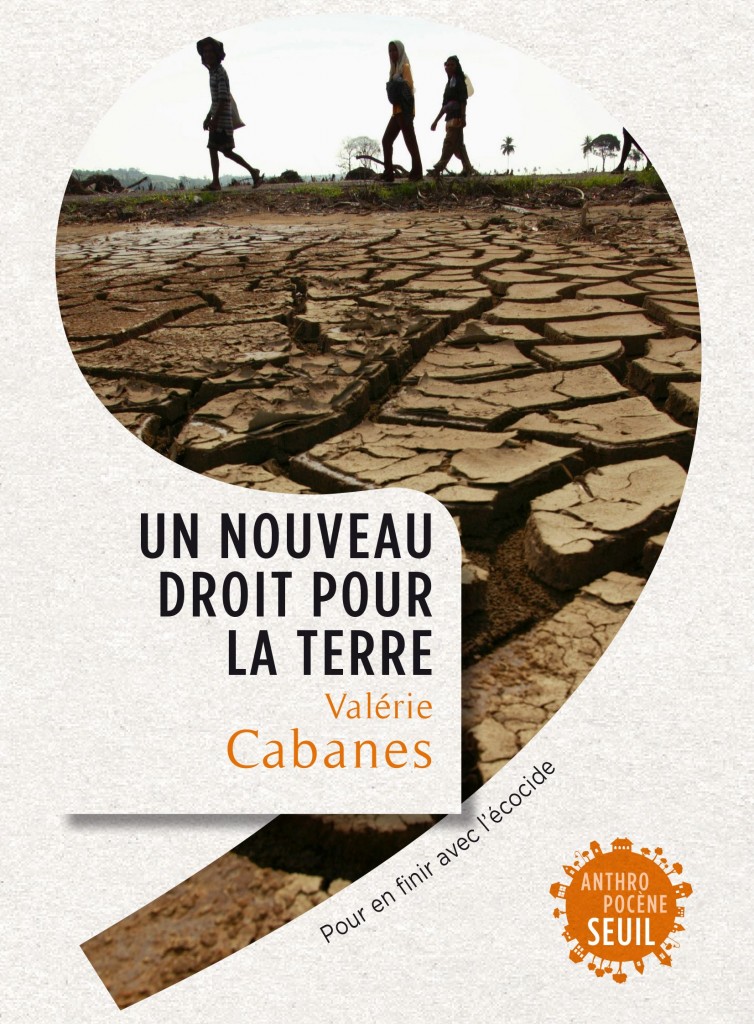
0 Kommentare